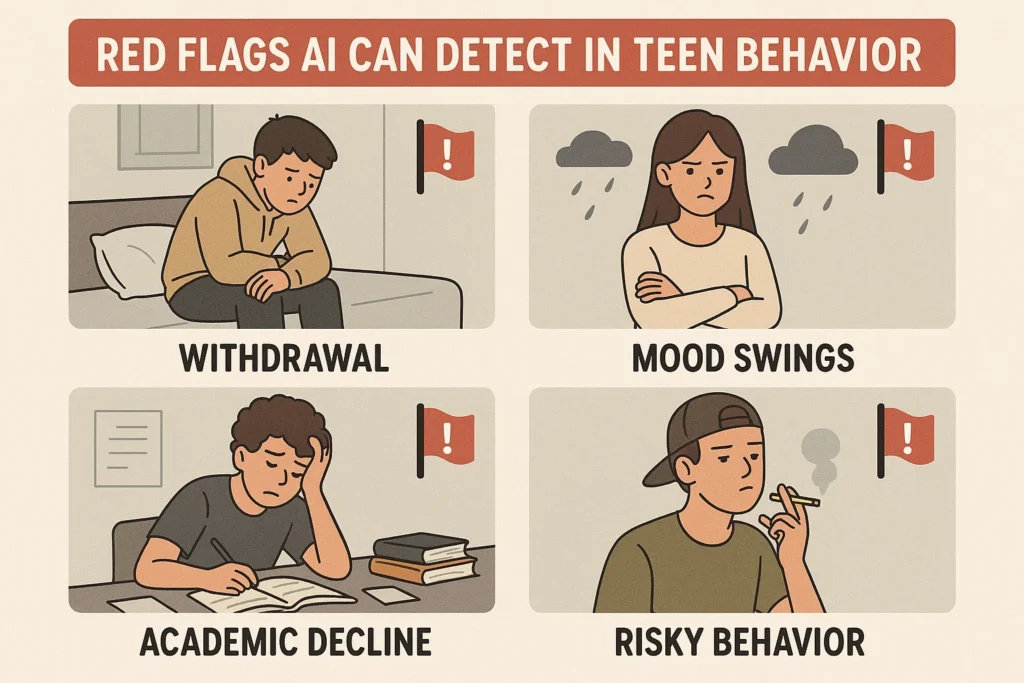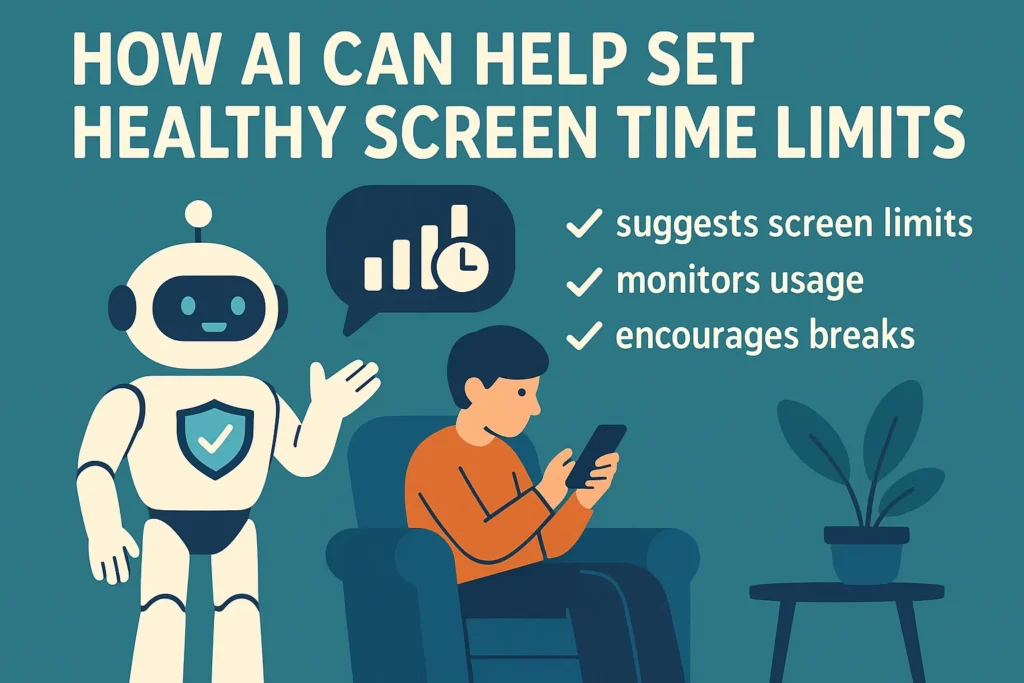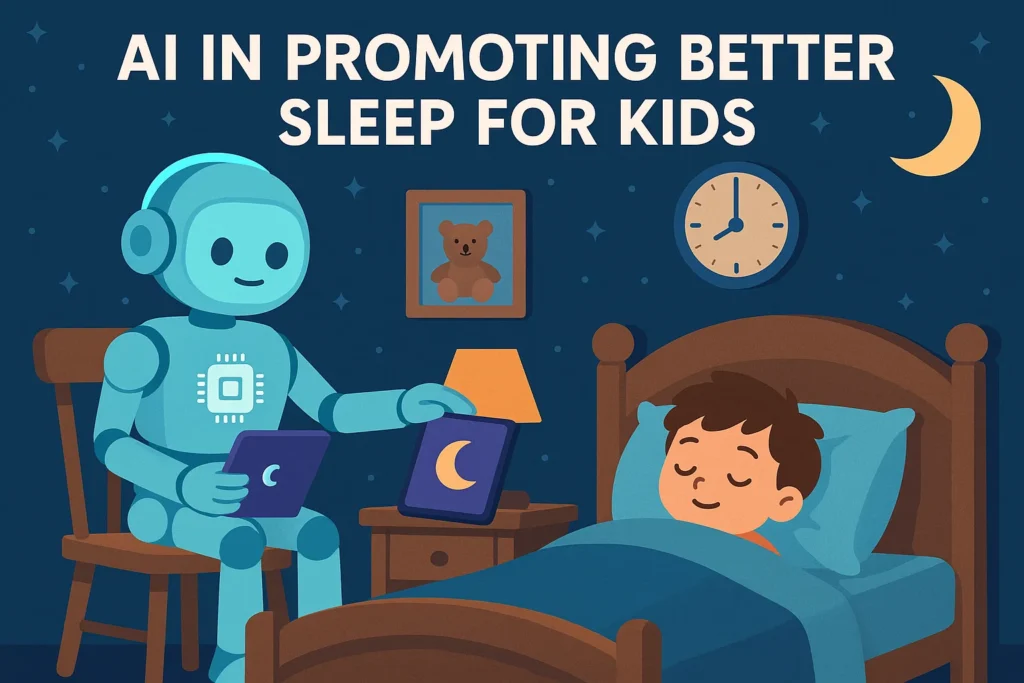📌 Introduction
Teenage years are full of emotional and behavioral changes, making it difficult for parents to spot early warning signs of stress or trouble. Today, AI tools are being used to track patterns in mood, language, and online activity. At AiBlogQuest.com, we explore the red flags AI can detect in teen behavior, helping parents identify risks and support their children before problems escalate.
✅ 7 Red Flags AI Can Detect in Teen Behavior
-
Sudden Mood Swings
AI mood trackers analyze writing style, tone of voice, and social media posts to identify emotional instability. -
Withdrawal from Social Interaction
AI can spot reduced messaging, decreased social engagement, or avoidance patterns indicating possible isolation. -
Signs of Cyberbullying
Monitoring tools detect abusive or harmful messages that may suggest a teen is being bullied online. -
Unusual Sleep Patterns
Wearables and apps track irregular sleep cycles, which often correlate with anxiety or depression. -
Risky Online Activity
AI parental apps flag inappropriate content consumption or dangerous online challenges. -
Drop in Academic Performance
AI-powered learning platforms can highlight sudden declines in focus, participation, or grades. -
Expressions of Distress
Natural language processing in AI detects words or phrases that may suggest self-harm, hopelessness, or high stress.
🌱 Why These Red Flags Matter
Early intervention is key. By detecting these red flags, AI can give parents insights into teen mental health and behavior changes before they escalate into serious issues.
🚀 The Future of AI in Teen Wellbeing
In the future, AI tools may integrate directly with schools and healthcare systems, giving a more complete picture of a teen’s wellbeing while respecting privacy boundaries.
🔗 Useful Links – AiBlogQuest.com
-
AI and Children’s Mental Health
-
AI for Monitoring Emotional Wellbeing in Kids
❓ FAQ
Q1: Can AI really understand teen emotions?
AI detects patterns and signals but does not “understand” emotions like humans. It provides helpful insights, not conclusions.
Q2: Is AI monitoring safe for teens?
Yes, when used ethically and transparently, AI can support teen wellbeing without being overly invasive.
Q3: Can AI replace parental guidance?
No, AI is a supportive tool. Parents must combine AI insights with conversations and emotional support.
Q4: What should parents do if AI detects red flags?
Use it as a starting point for dialogue, and if necessary, seek professional help.



